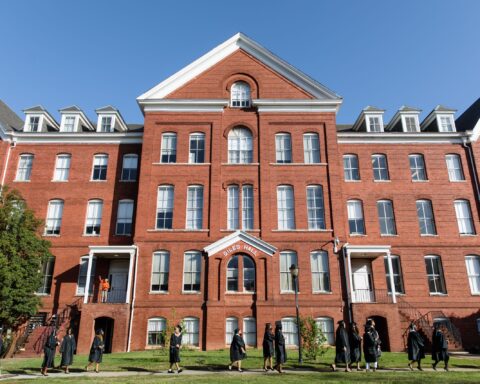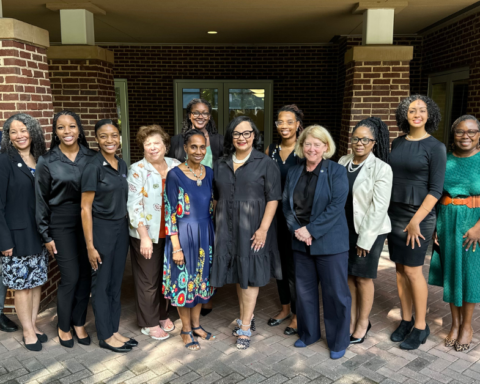Courtesy of Spelman College
Two Spelman College faculty members were invited to contribute to The Fifth National Climate Assessment, a congressionally mandated report formed under the Global Change Research Act of 1990 that addresses what scientists know about climate change, how it affects the U.S., and its current and projected trends over the next 25 to 100 years.
Dr. Fatemeh Shafiei, director of the environmental studies program and associate professor of political science at Spelman, and Dr. Na’Taki Osborne Jelks, MPH, C’95, assistant professor of environmental and health sciences, were part of a team of over 300 experts guided by a 60-member Federal Advisory Committee to produce the report. The national assessment, which took almost two years to create, was extensively reviewed by federal agencies, the public, and a panel of the National Academy of Sciences.
“The National Climate Assessment considers and assesses a range of potential effects of global change on the natural and built environments, human health, human social systems, and a host of other environmental systems and factors,” said Dr. Jelks, contributing author of chapter 12, entitled Built Environment, Urban Systems, and Cities. “As global change is an existential threat to humanity, this type of document is critical to establishing the weight of the evidence associated with its impacts and in providing an assessment of potential solutions that can be pursued.”
Unlike past reports, the fifth assessment draws heavily from social sciences, humanities, art, and Indigenous studies to help contextualize the scientific findings. According to Dr. Shafiei, analyzing the disparity of climate change’s impact on marginalized communities is a positive step in the right direction toward centering those who experience the brunt of climate crises.
“If you lift the voices of those who are most impacted, you will find solutions, because they are the frontline communities. They are not just victims, but powerful change agents,” said Dr. Shafiei, contributing author of chapter 15, entitled Human Health. “This forward thinking of drawing from social sciences puts the science into context and gives it a prism for relevance that steers us in the right direction. We cannot address climate change without addressing environmental injustices.”
Spelman is one of six historically Black colleges and universities to have authors featured in this year’s climate assessment — a notable increase from zero in the last report, and a change Dr. Jelks said is integral to deepening the understanding of climate justice.
“To advance an understanding of actions needed to advance climate justice, the diverse experiences and expertise of Spelman College faculty were critically important to include,” said Dr. Jelks. “While global change is a natural process, social systems amplify it and are the root of the inequitable distribution of climate change risks and burdens.”
The assessment — due approximately every five years — emphasizes the importance of long-term planning, investments in transformative adaptation, and equitable approaches to mitigate the consequences of climate change and increment warming. Despite the damage that has already occurred, preventing future warming can help limit harmful impacts to current and future generations.
“Our destiny is not predetermined,” said Dr. Shafiei. “We can turn this crisis into opportunity by centering environmental justice in our climate resilience efforts.”





